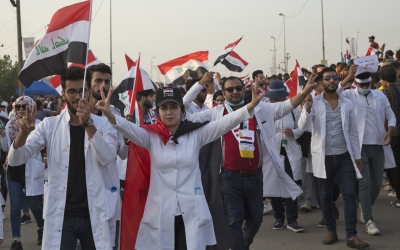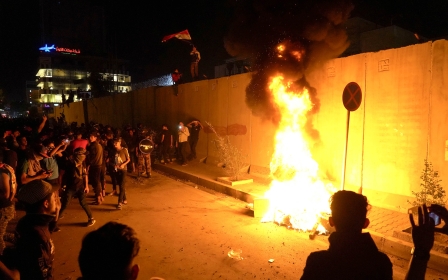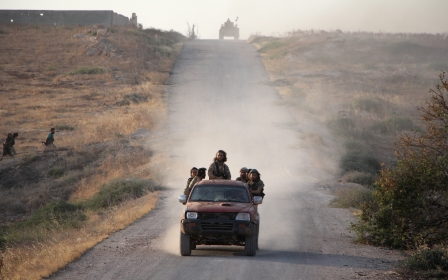Iraqi forces advance towards central Baghdad, kill at least five protesters
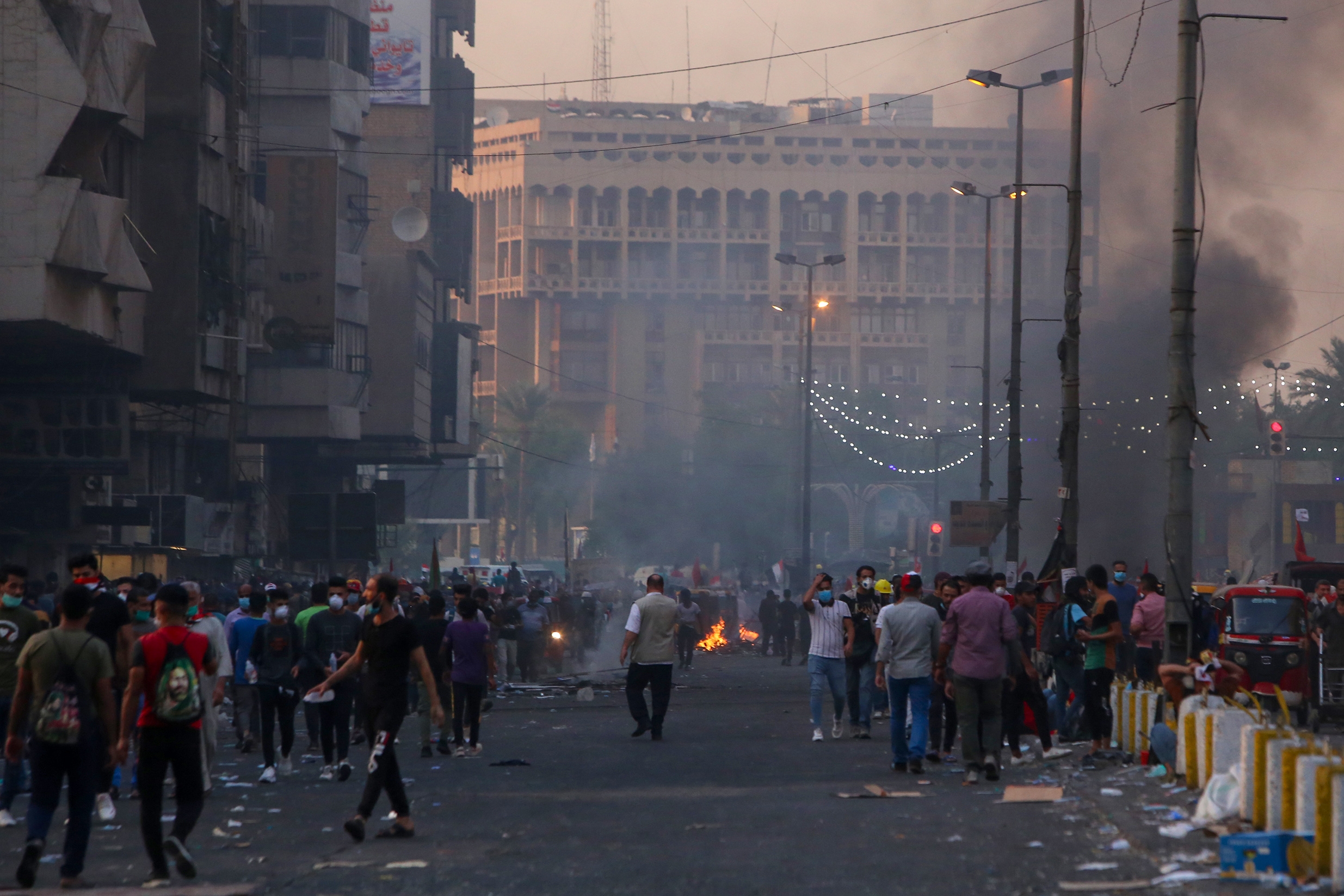
Iraqi security forces killed at least five people on Saturday as they pushed protesters back towards their main camp in central Baghdad, using live ammunition, tear gas and sound bombs, police and medics said.
The clashes wounded scores more people and put security forces back in control of all except one major bridge linking the Iraqi capital's eastern residential and business districts to government headquarters across the Tigris river, Reuters said.
The government promised reforms aimed at ending the crisis. Prime Minister Adel Abdul Mahdi said on Saturday that political parties had "made mistakes" in their running of the country, recognised the legitimacy of protest to bring about political change and pledged electoral reform.
AFP correspondents saw people shot in the chest collapse to the pavement, while the booms of stun grenades and tear gas rang out.
'We can hear live fire now and there are so many wounded'
- Doctor
"The security forces are getting closer to us, but the protesters are trying to hold them off by burning tyres," a doctor in Tahrir Square told the AFP news agency.
New MEE newsletter: Jerusalem Dispatch
Sign up to get the latest insights and analysis on Israel-Palestine, alongside Turkey Unpacked and other MEE newsletters
"We can hear live fire now and there are so many wounded."
One protester said that the security forces had instructed the protesters to “go home".
"We put up more barricades so they won't enter Tahrir. Tomorrow, no one goes to work," he said.
Tents reduced to ash
Earlier, security forces wrested back control of three bridges over the River Tigris in the heart of Baghdad that had been partially occupied by protesters.
Protesters are now on the back foot but still occupy part of the al-Jumhuriya bridge which leads to the Green Zone, where parliament and the British and US embassies are located.
In the southern city of Karbala, security forces fired tear gas canisters at the tents of protesters, reducing them to ashes.
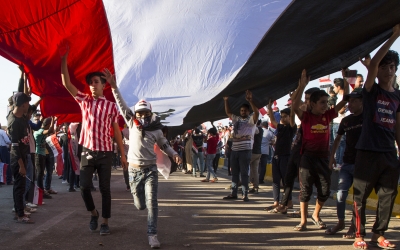
And in the city of Basra, security forces cleared a protest camp outside the provincial government headquarters.
Three people were killed and dozens wounded, according to medical sources, and security forces began rounding up demonstrators.
The capital and much of the country's Shia south have been rocked by a wave of demonstrations since 25 October, as anger mounts over deep-seated corruption, lack of public services and cronyism that has afflicted Iraq since the 2003 US-led invasion.
One in five people live in poverty and youth unemployment stands at 25 percent, according to World Bank figures.
According to other estimates, a staggering $450bn of public funds is believed to have disappeared since 2004, lining the pockets of senior politicians and officials.
'Any means possible'
Saturday's crackdown came after political chiefs agreed to rally around the embattled prime minister.
Abdul Mahdi, 77, came to power last year through a shaky alliance between populist cleric Moqtada al-Sadr and Hadi al-Ameri, a leader of the Hashed al-Shaabi paramilitary network.
When the protests erupted, Sadr threw his weight behind them while the Hashed backed the government.
But they closed rank around the premier this week after a series of meetings led by Major General Qasem Soleimani, the head of the Iranian Revolutionary Guard's foreign operations arm.
Soleimani, who often plays a mediating role during times of crisis in Iraq, met with Sadr and persuaded him to return to the fold, said a source present at the meetings.
"Those meetings resulted in an agreement that Abdul Mahdi would remain in office," the source said.
Sadr has since gone silent amid reports he is in Iran.
Another source said political factions agreed this week to move forward on reforms and constitutional amendments if the premier and government stayed in place.
"They agreed to end the protests with any means possible and to reopen the bridges and shuttered streets," said a senior member of one party represented at the gathering.
Abdul Mahdi met President Barham Salih on Saturday for the first time in days. Government sources had told AFP ties between them had been cut after Salih proposed the premier be replaced.
Parliament convened Saturday afternoon to discuss reform proposals, including hiring drives and increased welfare payouts.
Middle East Eye delivers independent and unrivalled coverage and analysis of the Middle East, North Africa and beyond. To learn more about republishing this content and the associated fees, please fill out this form. More about MEE can be found here.


